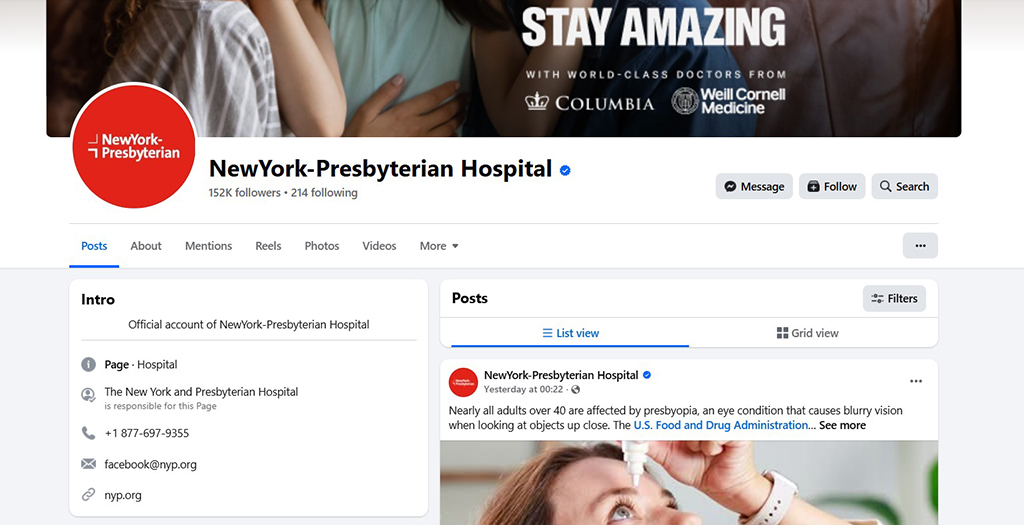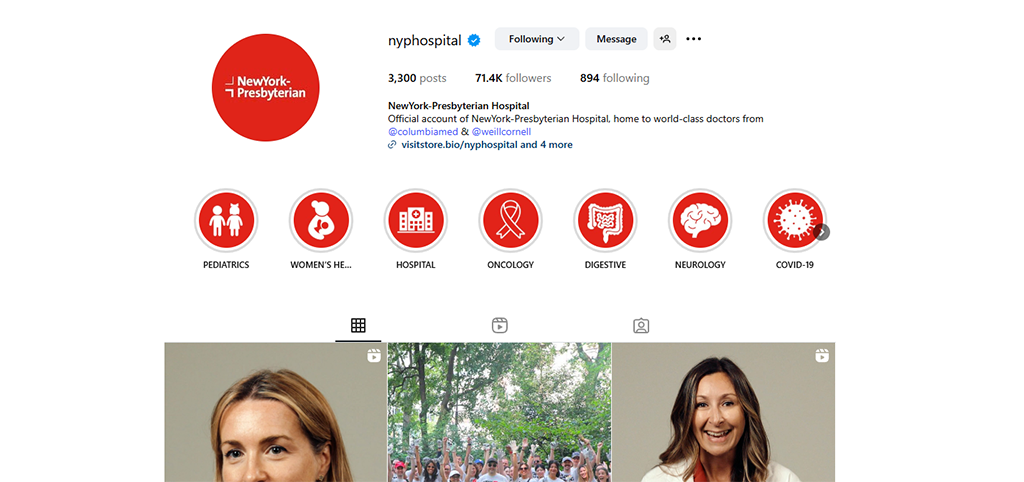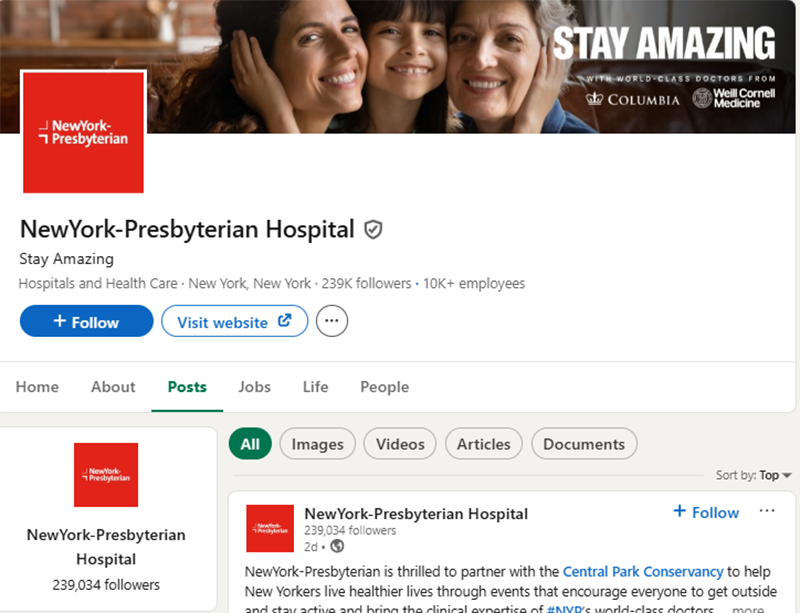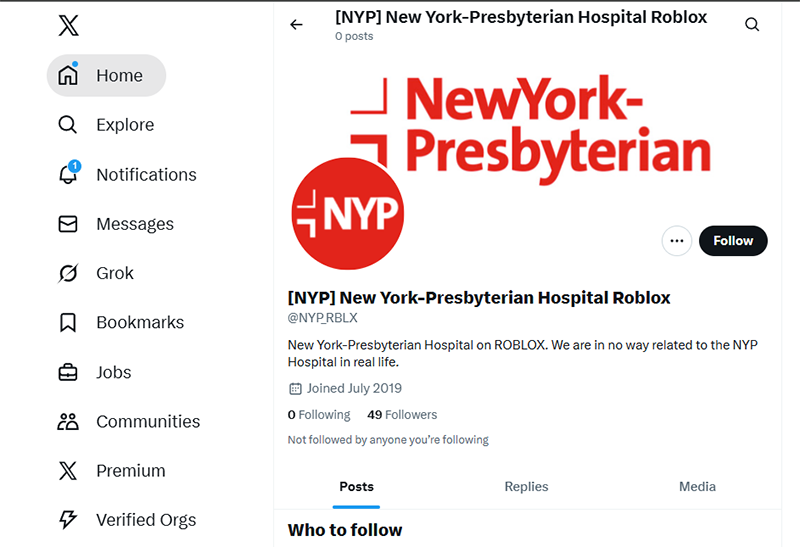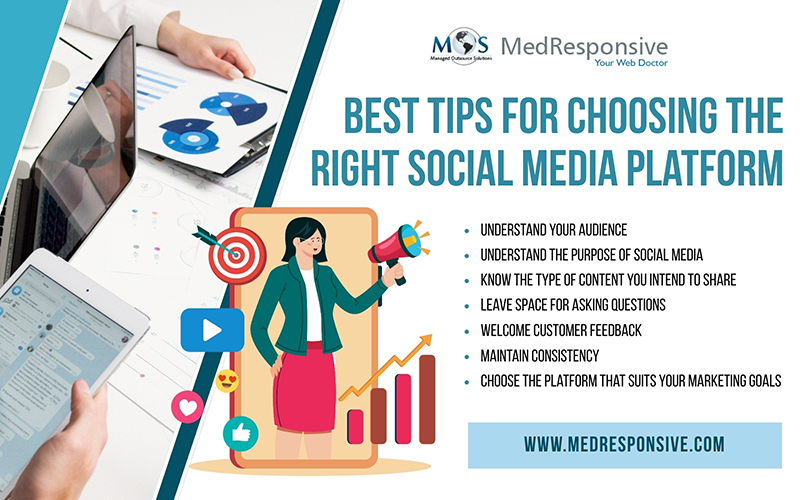Social media platforms like Facebook, Instagram, LinkedIn and so forth have become favorites with diverse business entities as these provide immense opportunities for the growth of any industry sector, including healthcare. At the same time, each of these platforms serves different purposes and choosing the right social media platform for healthcare business is necessary. An organic SEO company that provides medical social media marketing can help you choose the right platforms that can meet your needs.
Wondering how social media platforms can help in the growth of your healthcare business? Well, you can use social media platforms to perform various activities to invite the attention of your target audience. These include:
- Conducting healthcare social media campaigns
- Uploading videos and photos
- Creating posts for creating awareness
- Going live on social media
Before going on to the tips to choose the right social media platform, let’s take a look at the popular social media platforms.
Popular Social Media Platforms
- Facebook: Facebook is one of the most popular social media platforms among all. It not only connects people but is also a hub for promoting business. This has made it the favorite platform for healthcare providers as well. They can use Facebook to provide information, photos, videos, etc., to make their target audience aware of their facilities as well as the services they provide. A major advantage of the Facebook platform is that it provides space for visitors to leave reviews, feedback, and ratings, which helps healthcare providers improve their services.
Image Source:
- Instagram: Instagram is the fastest growing social media platform where you can share videos and photos related to your service, facilities, treatment results and so on. It is estimated that almost 800 million people are using Instagram on a daily basis. This makes it a great platform to attract the attention of patients. Patient engagement through social media platforms like Instagram can build trust. To grab the attention of the target audience, you can use hashtags, live interactions, promoting upcoming events, creating information posts, and so on. Posting something on a daily basis is key to retaining your followers.
Image Source:
- LinkedIn: This is the best B2B social media platform to expand your network. Unlike Facebook and Instagram, LinkedIn is a professional platform where healthcare providers can share medical news and articles directly with their colleagues in a formal manner. This information ranges from new discoveries to general health awareness. LinkedIn also connects people but in a professional way. You can search and hire appropriate candidates from LinkedIn if you have a vacancy in your facility.
Image Source:
- X: X is the platform for people who want information in capsule form. On X, information is shared in direct-to-the-point format. Thus, the users would convey information within a few words or sentences that help in saving a lot of time and effort for the readers. This makes it an ideal platform for busy doctors. The major advantage of using X in the healthcare sector is that it can drive organic traffic to your website.
Choose the Right Social Media Channels
Before finalizing your social strategy, take time to reflect and answer key questions. Jot them down on paper or use a note-taking tool. Some answers may be straightforward, while others require deeper research. The goal is to align every stakeholder so your strategy has clarity and focus.
- What are your core business priorities?
Social platforms impact more than marketing alone. While your marketing team may prioritize conversions, other departments, like product or customer service, may be focused on customer satisfaction or feedback. Ignoring these perspectives can mean missing out on opportunities where social channels provide valuable insights. By aligning priorities across teams, you can maximize the role of social media in supporting broader business objectives.
- Where is your audience most active?
A strong social plan balances company goals with audience behavior. To find where your audience spends their time, combine market research with your own analytics. Look at past performance data using tools like profile reports to see which platforms drive the most engagement and impressions. If one channel consistently performs better, investigate what makes it work.
- What are your competitors doing?
Analyzing competitor activity gives you an edge. By studying where they are most active, how they engage their audience, and what type of content resonates, you can uncover opportunities for your brand as it helps refine your medical practice social media strategy. If competitors thrive on certain platforms, it may indicate those spaces are worth your investment too.
7 Tips to Choose the Right Social Media Platform
- Know your audience: Before choosing a suitable platform, the primary task is to understand your audience. Each business has its own audience, and the taste for using social media differs from person to person. Choose a platform that most of your target audience prefers to engage within their leisure time.
- Understand the purpose of social media: Each social media platform serves different purposes. For instance, the purpose of Instagram is to convey messages through photos and video, while the purpose of Twitter is to deliver messages in a concise format. Thus, understanding the purpose of social media is important to meet the purpose of your activities.
- Determine the type of content you intend to share: Each social media platform supports different kinds of content. For instance, you can share long-form content on Facebook, while on Twitter you are allowed to post information only in a concise form. On the other hand, LinkedIn supports end-to-end professional posts. Thus, the nature of your post plays a vital role when selecting a social media platform.
- Leave space for asking questions: Leave space on your social media page for accepting patient queries and providing clear answers. If you spare some time to clear their doubts, then it might help you to create a healthy relationship between you and your patients. In addition, you can also create an impression that you are concerned about your patients’ well-being.
- Welcome customer feedback: It is important to welcome positive and negative feedback from your patients. Thus, leave a space for your patients to drop their feedback. This helps to improve your future services. Some platforms like Facebook provide space for visitors to leave their feedback, comments as well as ratings on the wall of commercial social media pages.
- Maintain consistency: Consistency is an important factor while handling a social media account. Post and update information to get the attention of your followers. Consistency is the key factor for the success of any social media activity.
- Ensure the platform is apt for achieving your marketing goals: At the end of the day, you are using social media as a tool to meet your marketing goals. Sometimes, you may finalize a platform that you might feel is easy to handle. However, as marketing your services is your primary goal, you should revisit your plan frequently and check whether it is working or not. You can even access your competitors’ social media activities, adopt some positive factors and change them to suit your own marketing goals.
When it comes to digital marketing for healthcare providers, selecting the right social media channel plays a key role. The best social media platforms for hospitals and clinics are those that combine patient engagement, professional credibility, and measurable outcomes.
Choosing the right social media network for patient engagement is essential for reaching out to your audience, building relationships, and promoting your services. By understanding your audience and goals while adhering to privacy regulations, you can make informed decisions and build a successful social media strategy. Remember to provide valuable content, track your performance, and adjust your approach as needed
Social media is a powerful platform to showcase your products, services, and solutions. It enhances business visibility, builds credibility, and connects you with a wider audience. Outsourcing digital marketing services can help you save time, reduce costs, and gain access to expert medical social media marketing strategies that improve online visibility and patient engagement


